 Photo: A.Pospelov / Pravoslavie.ru
Photo: A.Pospelov / Pravoslavie.ruThe Nativity Fast continues...
The Fast is a time of cleansing the soul and body. It is considered, and quite rightly so, that for a Christian cleansing is necessary not only for its own sake, in general, but also so that one might worthily commune of the Holy Gifts of Christ. Therefore, people are right in saying that the Fast exists so that during the Fast one may become “worthy” to receive Communion. That is true because fasting, abstinence, and asceticism are good means toward repentance. This is something that should be emphasized: fasting is not the goal of religious life, but merely a means [toward it].
However, repentance is something more than a means. If repentance is not the life in Christ itself, it is its actual well-spring, something so involved in [the goal of life in Christ], that it is as it were an integral part [of that life].
Without repentance, there can be no faith in Christ. The Gospel sermon addressed to sinful people begins with the words of the Forerunner and of the Lord Himself: “Repent, for the Kingdom of Heaven is at hand.” (Matthew 3:2). Repentance is the elemental, archetypal religious state that turns us toward Christ.
One who does not perceive the unworthiness, defectiveness, sinfulness and weaknesses with which he satisfies himself…does not see the need for God, and blindly believes that he can get along without Him.
However, one who perceives his own sinfulness, his impotency, his helplessness and limitations, one who is sorrowed by them and wants to be renewed and become the richer for it, one who turns to God and cries out as if from the depths of a pit, “Out of the depths have I cried unto Thee, O Lord. Lord hear my voice. Hear me, for I am poor and in need!” (Ps. 129:1) – such a person is on a religious path; he is no longer self-contented, but wants to rise up out of himself and turn his attention beyond the bounds of his being. Thus, fasting is beneficial towards evoking in ourselves feelings of repentance. A sense of repentance can also appear in the absence of fasting. An example would be the thief on the cross who turned to Christ and in the blink of an eye, repented. You do not need a lot of time to repent. It is possible to repent in the blink of an eye! There were times when many martyrs would come to Christ without having fasted or made any other “preparation.” It may be possible through means other than fasting to be sanctified and “be made worthy” to commune of the Holy Gifts. But it is impossible to do so without repentance. It is impossible to come to Christ dressed in filthy garments. God said, “Ye shall therefore be holy, for I am holy.” (Leviticus 11:45). The morally unclean should not, and simply cannot, approach God and see Him. “Blessed are the pure in heart, for they shall see God.” (Matthew 5:8) Moreover, one cannot prepare for communion of His Holy Gifts without vesting the heart in “wedding” garments.
In preparing to approach and commune of the Holy Gifts of Christ, one feels oneself to be just like those in the Gospel parable who were called to come to the royal wedding feast. King. This is because communion of the Body and Blood of the Savior is a continuation of the Feast of the Lord at the Mystical Supper, when Christ and His disciples were celebrating the Passover and when at that Jewish Feast, He instituted the Mystery of the Eucharist, i.e. Holy Communion.
The Feast of the Lord, the Eucharist, is “the Feast of Faith” during which our most intimate communion with Christ, the Wedding of Christ and the Church (Ephesians 5:22-33), takes place. “Take, eat – this is My Body” – said Christ at the Wedding Feast in the Upper Room on Mt. Zion. Each time we commune of the Eucharistic Body and Blood we are with Christ in the Upper Room on Mt. Zion, and we experience God’s love towards us sinners, the love expressed in the Savior’s sacrifice for us on the Cross on Golgotha.
It is obvious that when we reflect on all this, when we think about the fact that in communing of the Savior’s Body and Blood, we participate in His wedding feast, we cannot fail to remember that among those attending the feast in the Gospel parable, there was one “…which had not a wedding garment” and upon seeing him, the King said to him sternly, “Friend! How camest thou in hither, not having a wedding garment?!” and having said that, ordered the servants to cast the careless man out the door of the house in which the feast was taking place (Matthew 22:11-13).
When approaching the holy, one must be washed and cleansed, and must have the fear of God.
What does it mean to be washed of sin?
Human falling into sin begins with the moment he is visited by the demonic temptation to hold an inflated opinion of himself, to see himself as the center of everything, to have a high and inflated opinion as to his independent existence, his freedom and independence of reliance on anyone, not even on God.
A person’s falling into sin begins with his loss of recognition that man is God’s creation, and that he is in the hands of God. Man’s first, original, sin, the sin which gives birth to all of the others, is his seclusion, selfishness, pride, and isolation from God, from his Creator.
When approaching for Holy Communion, we must repent of the fact that while calling ourselves Christians, we do not hear Christ’s constant and unceasing appeal, “Come unto Me, all ye that labor and are heavy laden, and I will give you rest….” (Matthew 11: 28.)
When approaching for Holy Communion, we must regret that we had thought to rid ourselves of the burdensome weight of our sins by ourselves, without His grace-filled help, completely ignoring His redemptive Sacrifice on Golgotha.
As we open the door of our heart at which Christ knocks (Revelation 3:20), let us repent of not having opened it to Him yesterday, and that He had to stand outside the door, waiting for our love, all night.
As we enter into the Wedding Feast of the Lord, let us put on appropriate wedding garments: conscious recognition of our dependence, our poverty, our weakness – that, after all, is what we require to avoid being cast out into the darkness.
 Photo: G.Balayants / Pravoslavie.ru
Photo: G.Balayants / Pravoslavie.ruWhy did we imagine that without Him, without communing of Him, we could live and accomplish anything? How could we have forgotten His words, “Without Me, ye can do nothing!”? Why did we imagine that without communing of Christ, we could rid ourselves of our sins, of our sorrows and disappointments, of our despondency, our coarseness and despair?
Why did we imagine that we could obey His commandment and love one another without communing of His Body, which is also His Church? Why did we not realize before today that our divisions and disagreements are the result of our estrangement from His mystical Body?
How could we have not constantly communed of His Blood, knowing that It was shed for us for the remission of our sins (Matthew 26:28) and that it is only through It that we can be rid of our sinfulness?
Lord, how could we have imagined that in order to become “worthy” of communing of Your Holy Gifts, we needed something other than repentance of our proud conceit, how could we have held to the naive notion that it was not You that made us worthy, but that we somehow “make ourselves worthy” through fasting, praying, doing good deeds, or coming to church...
How could we, O Lord, have closed our ears and not heard that You were calling us to Yourself, that You want to heal us, to enliven by offering us to eat of Yourself, Your Body and Your Blood?
We repent, O Lord, of not understanding and not remembering the words You said, that in commemoration of Your redemptive sufferings, we must continually serve the Lord’s Supper, and from it draw strength to live our life. As Your Apostle said, “For as often as ye eat this Bread, and drink this Cup, ye do shew the Lord’s death till He come.” (I Corinthians 11:26). The Divine Eucharist is the continuing Mystical Supper related to Your sufferings.
Forgive us, O Lord, for our carelessness and our pride, for the idea, instilled in us by the devil, that we do not need to commune of the Holy Gifts, that we can live through a week, a month, or even up to a year without that Communion! Forgive us, Lord, for our inflated opinion of ourselves, for our flippancy and thoughtlessness.
Forgive us, O Lord, for incorrectly thinking that in refraining from Communion, in constantly putting it off, we are ostensibly acting piously and properly out of respect for Your Holy Things (Which one must approach “having prepared oneself”); we did not understand, O Lord, that real preparation is our humility before the miraculous and healing power of Communion of Your Body and Blood, shed specifically for the remission of our sins! (Matthew 26:28).
Grant us, O Lord, that at least now, during the Nativity Fast, we have the strength to come to our senses, to suddenly remember ourselves, and to open the door of our heart to Thee, who art knocking
“Even so, come, Lord Jesus!” (Revelation 22:20)

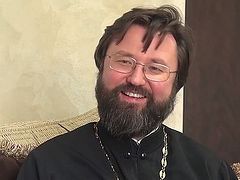
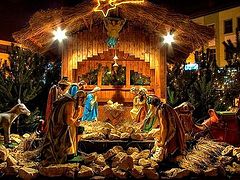
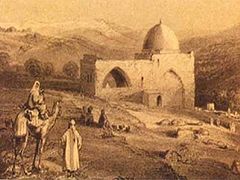

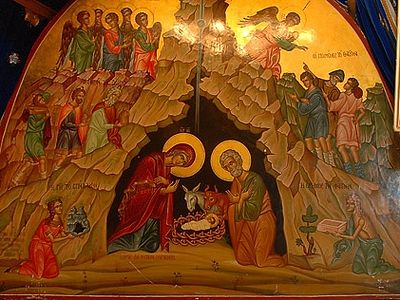
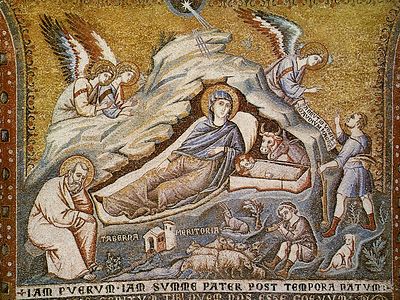
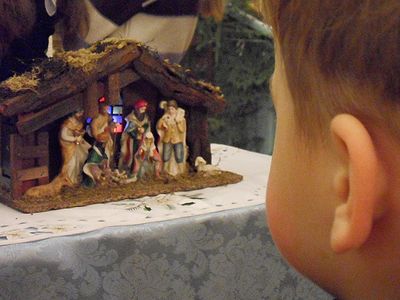
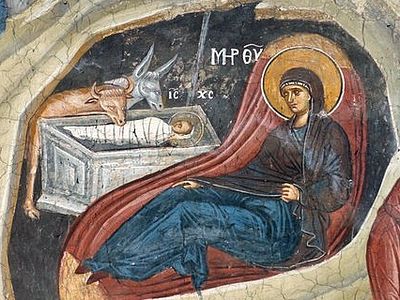
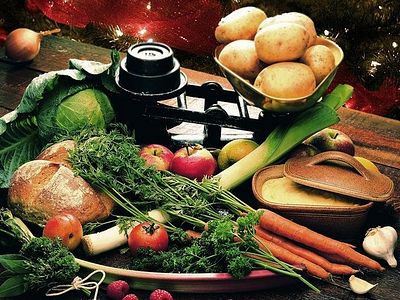
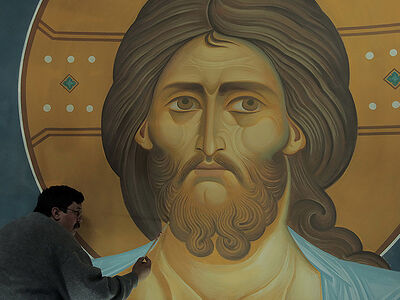
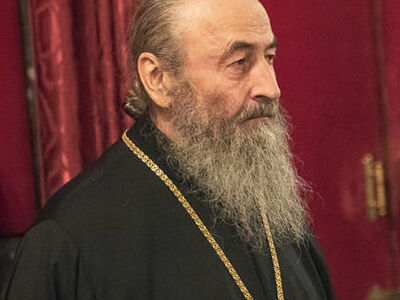
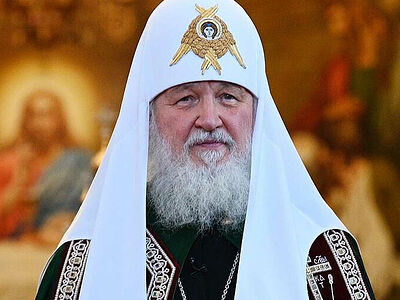

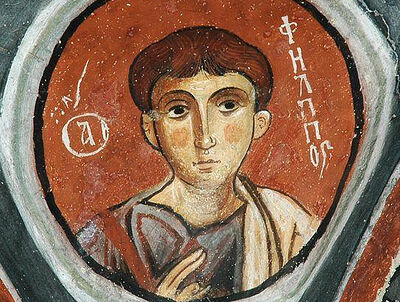
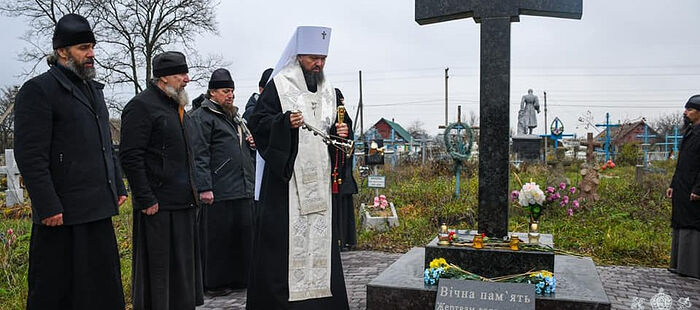
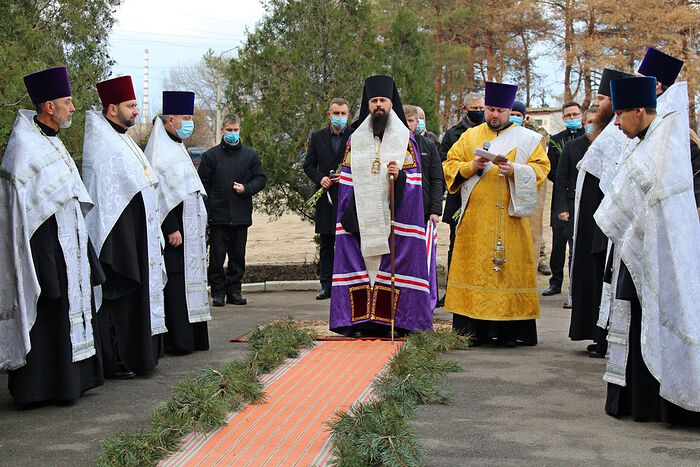
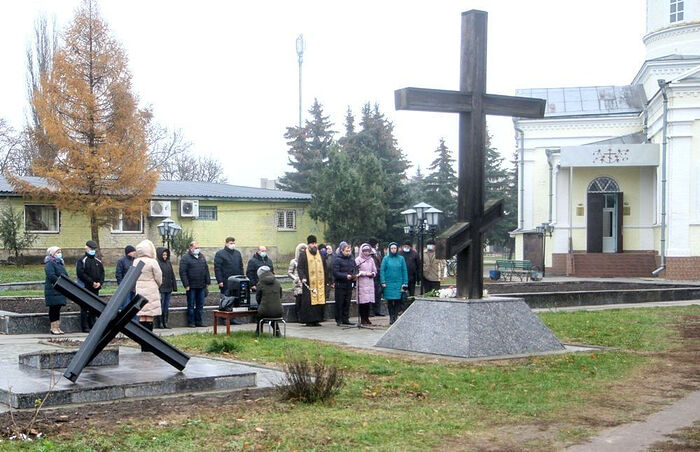
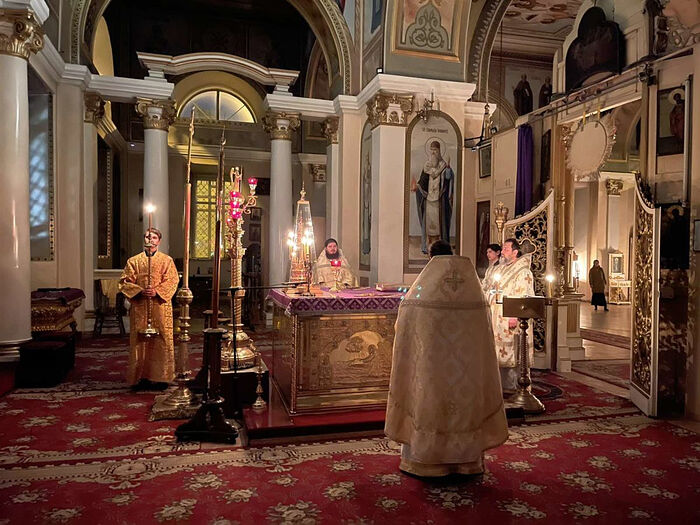
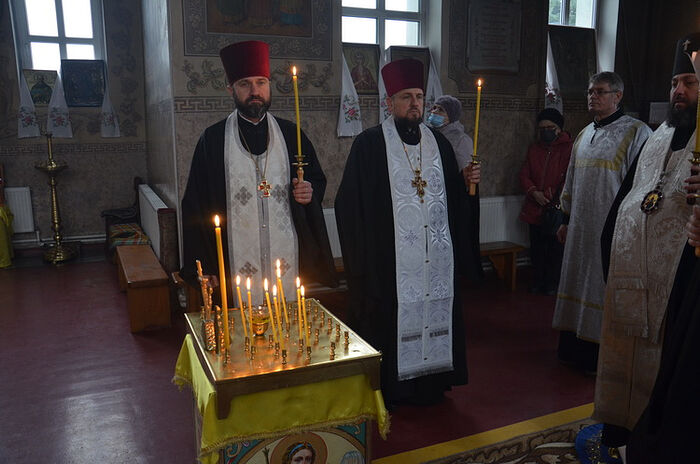
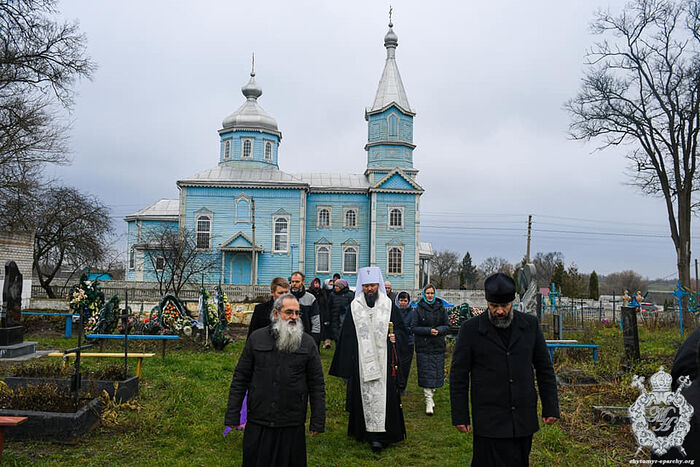
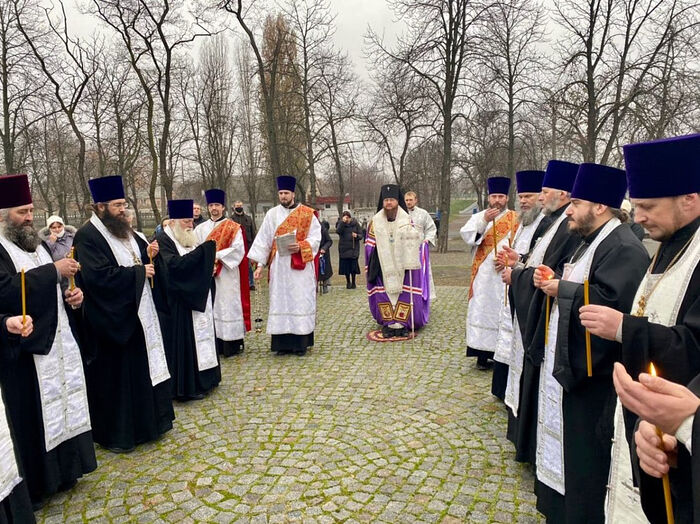
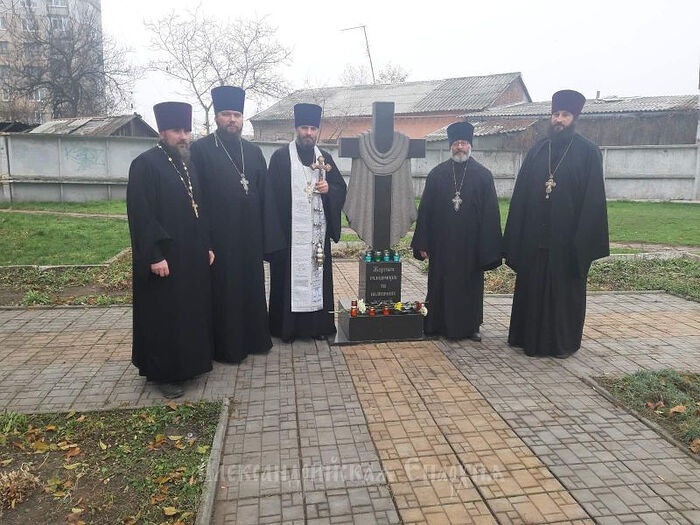
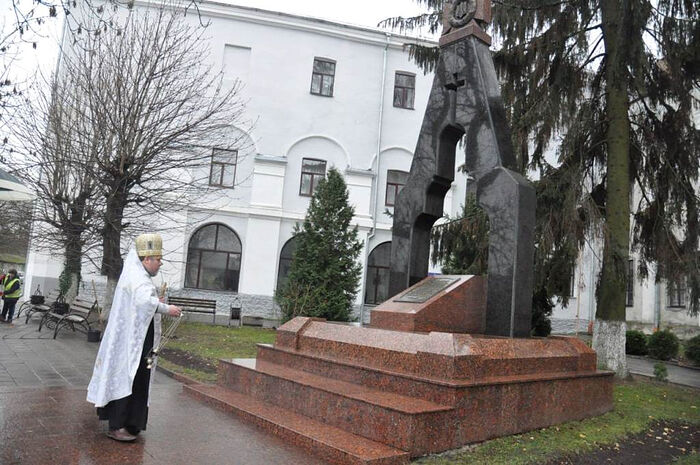
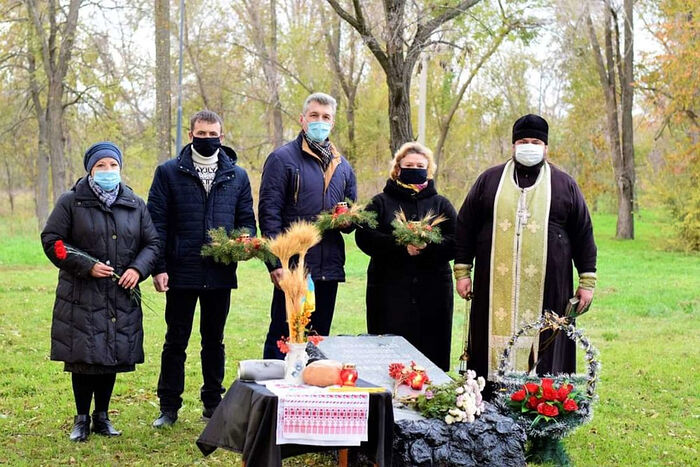
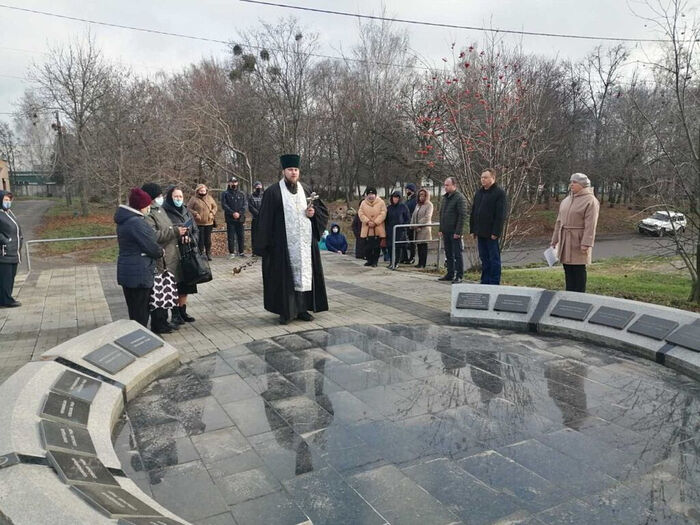
Peace of Christ be with you,
Robert Joseph